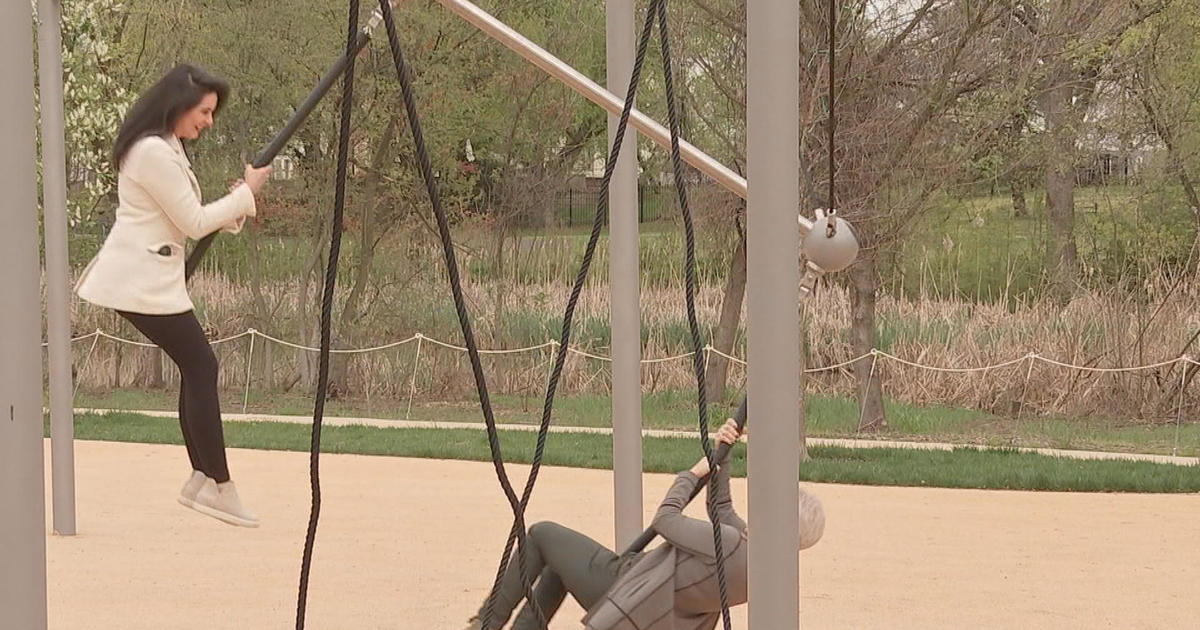Locks Are Key For Group Of Philadelphia Puzzle-Solvers
by Ian Bush
PHILADELPHIA (CBS) - There's a group of puzzle-masters in Philadelphia, but they're not solving Sudoku or completing crosswords.
They're people who love locks.
"Lockpicking requires a lot of creative thinking. You have to be very good at visualizing, how components are interacting with each other and moving," says Babak Javadi, president of The Open Organization Of Lockpickers (TOOOL) in the US.
There are a couple dozen members of his Philadelphia group, which meets every month.
While some are quick to raise an eyebrow at the idea of a lockpicking enthusiast, Javadi says there's nothing nefarious about what they do.
"You'll never see people talking about how to bypass doors or anything like that," he says. "We have a very strict code of ethics that everyone abides by. We have two rules that everyone must follow at all times: don't pick locks that you don't own, and don't pick locks in use."
They do what they do for fun, but also to help.
"There have been many, many cases where locks have been changed, improved, or otherwise updated as a direct result of research done by people in this community," he says. "We're just a group of people that like locks -- we love picking them, learning about them, and seeing how they work."
Like the muscular Model 833 -- a don't-mess-with-me, $1200 padlock sold by Sargent & Greenleaf (since replaced by the Model 951). Javadi says the US military uses it to secure weapons and ammunition.
"It has a number of ceramic inserts hidden throughout the body and side. That makes it difficult to grind or cut through the lock. It has special resistance against cryogenic attacks, such as liquid nitrogen."
Here, he gives a play-by-play of lockpicking, as he defeats a standard Schlage-type pin tumbler cylinder:
"During manufacturing, there are certain tolerance issues that introduce defects in the lock. You can exploit those tolerances and basically get the lock to give you feedback as to what's going on inside. What I'm doing is applying tension to the plug, using a tension tool. I'm applying rotational tension -- in this case clockwise, and very, very lightly. I'm using a pick tool to manipulate the pins. I'm not moving them very much -- only fractions of an inch at a time. There are going to be multiple pin stacks; some are going to be harder to manipulate than others -- that's because they have more friction on them -- and there's going to be more resistance that I'm encountering. These are pins that are called binding pins. By setting these pins first, we can get them stuck into place where they're no longer impeding the lock from opening. One by one, we're setting each pin and reducing the number of pins that are still keeping the lock closed. If you have a five-pin lock, you take it down to four, then three, then two, then one -- and the lock is open."
Much like puzzle solvers of the more traditional sense, Javadi uses lockpicking as a mental exercise, even packing locks on a plane trip to pass the time. And much like that clue that stumps a crossword player for hours or days, he's had his share of brainteasers.
"There was a lock I'd picked up at a local Walmart," Javadi says. "It was a Brinks padlock, and happened to have some serrated pins -- some special pins to make picking difficult. For some reason, this specific lock was very difficult. Over the course of about a year and a half, every once in a while I'd pick it up, try to pick it for an hour or two, and then I'd get tired of it and put it down. Eventually, I got it open. And that was really cool."
For those concerned about home security, he advises steering clear of big-box hardware store chains:
"As compared to Europe, we have a lower standard of security for the quality of our mechanical locks in the US. That is a byproduct of how the industry operates here, in my opinion, and also the byproduct of what the market demands. But there are good quality locks out there. In fact, going to your local locksmith -- a real one -- and asking them about high-security locks is always a good idea. But the main thing to keep in mind -- that is just one point of failure. You can have an amazing lock that no one can pick, but if you have windows on your house or a weak door, then the best lock in the world isn't going to help you. You have to think about your security as a whole entity, and you have to look at all aspects of it."
What if you actually wanted the 'best lock in the world?' Javadi proposes the Evva MCS.
"To my knowledge, no one has been able to pick one of these yet. It works on the principle of rotating magnetic discs inside the lock. In fact, it's so unique that the only machine that can make these keys is in Vienna, Austria. The company has only one machine in the world that makes these."
As for the unpickable lock? Javadi claims there's no such thing.
"Only a lock that hasn't been picked yet," he explains. "If a lock can be opened with a key, then it can somehow be opened by something that is not the key.



